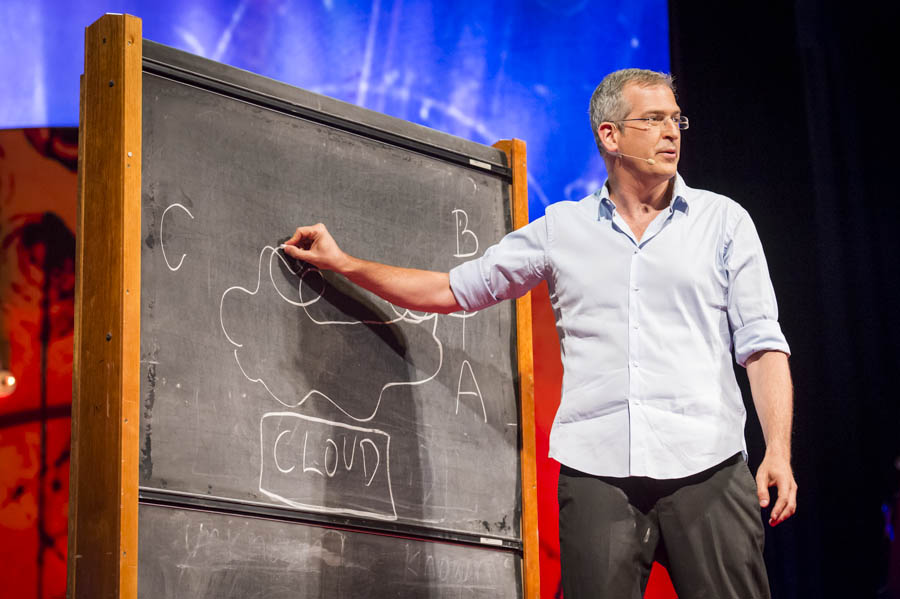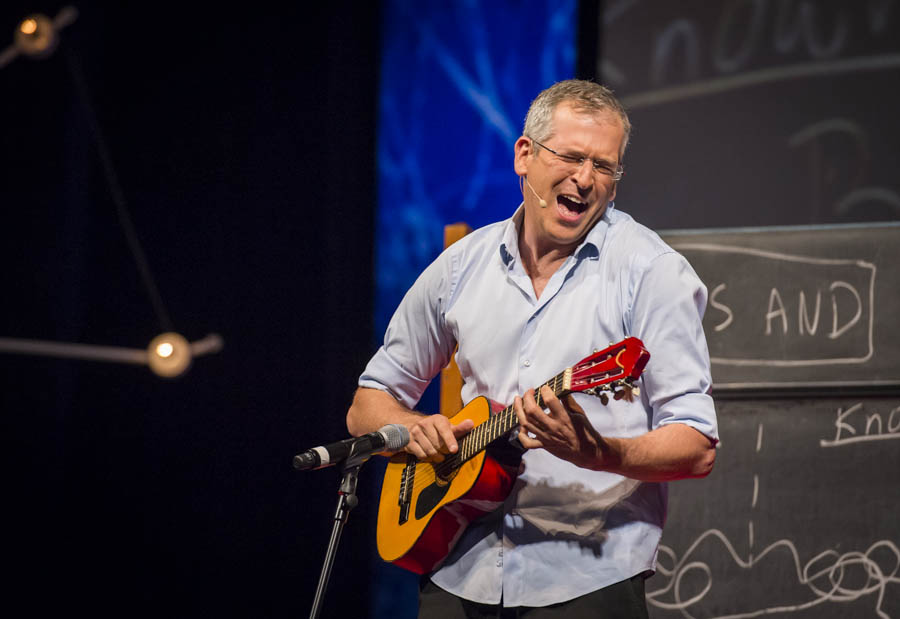“In the middle of my PhD, I was hopelessly stuck,” confesses scientist Uri Alon. “Every research direction I tried led to a dead end. It seemed my basic assumptions stopped working.” Alon felt like a failure. And even though he got through it, the experience stuck with him … especially when it happened again.
While Alon was studying physics by day, at night he was studying improvisation theater. Like science, this discipline plunges into the unknown. “Unlike science, in improvisation theater they tell you what will happen when you get on stage: you will fail miserably. You’ll get stuck.” Indeed, he and his improv friends even practiced what to do when they were stuck.
When Alon became a professor with students of his own, he decided to try to bring some of the insights from improv to his teaching. He wanted to help his students see that the traditional schema or pattern of research was actually unhelpful. Science is never a simple equation, an arrow leading from a to b. There’s a big fuzzy area in the middle, while the answer is actually often c, an entirely unexpected result. He draws on a blackboard to explain what he’s saying, and the image that emerges makes it clear why he has dubbed that fuzzy area “the cloud.”
The new way of thinking illuminated an important point for Alon, who realized that too often, in science, the unclear process is entirely overlooked in the excitement of publishing results. But, he says, “In science, you do something quite heroic; you face the boundary between the known and the unknown. You face the cloud.” Now, when his students tell him they’re in the cloud, he congratulates them. “I say ‘great! You must be feeling miserable!'” he laughs. “But it’s happy, because they must be close to that boundary between the known and the unknown.”
Another trick from improv: not to shut down ideas or suggestions with a terse “no,” but instead always to say “yes, and…” Scientists are prone to shutting down ideas, and saying “yes, and” helps them to bypass fear and skepticism, and in so doing unlock creativity. In his own lab, it has paid off handsomely. He shares an example: “We were trying to understand intricate biochemical networks,” he says. “We were deeply in the cloud. So one student said ‘Let’s draw it on a piece of paper.’ Instead of saying ‘We’ve done that so many times, it doesn’t work,’ I said ‘Yes, and let’s use a really big piece of paper.'” Looking at that drawing, it turns out, helped them to make an important discovery about biological systems that he has since presented at conferences around the world.
Alon is still keen to see and hear scientists talk about the process of science, including the hidden complications. But whenever he tried to introduce the topic at conferences, he got shut down. Scientists didn’t want to talk about the subjective, emotional side of their field. That would be unscientific, somehow unseemly. So he wrote a blues song about the fear and sadness of being scooped when someone publishes before you do. Alon has a guitar with him, and he sings us that song, asking the crowd to sing backup: “Scooped! Scooped!” We all laugh. And even though it’s a silly song, we grasp that there’s a serious message here.
“Remember, the next time you face a problem you can’t solve in work or in life, there’s a word for what you’re going through: the cloud,” Alon concludes. “Go through it not alone but together, with someone who can say ‘yes, and’ to your fears. Through the wisps of the cloud you’ll find calmness and get your first glimpse of your unexpected discovery, your C.”


Comments (2)
Pingback: Product Blog Ideas – Nandi's Fall 102A Work
Pingback: TEDActive on the road: Edinburgh, Scotland | TEDActive Blog